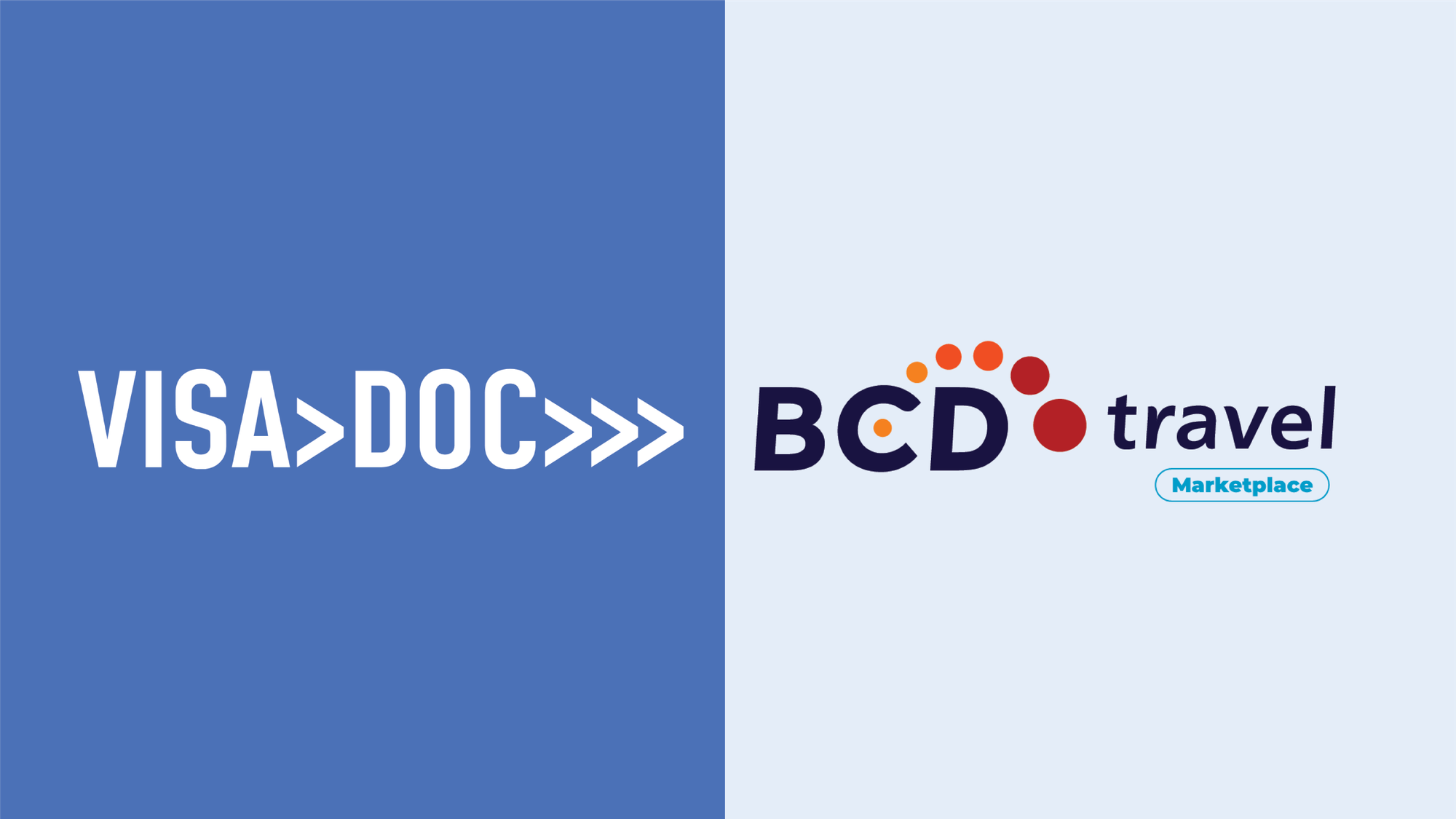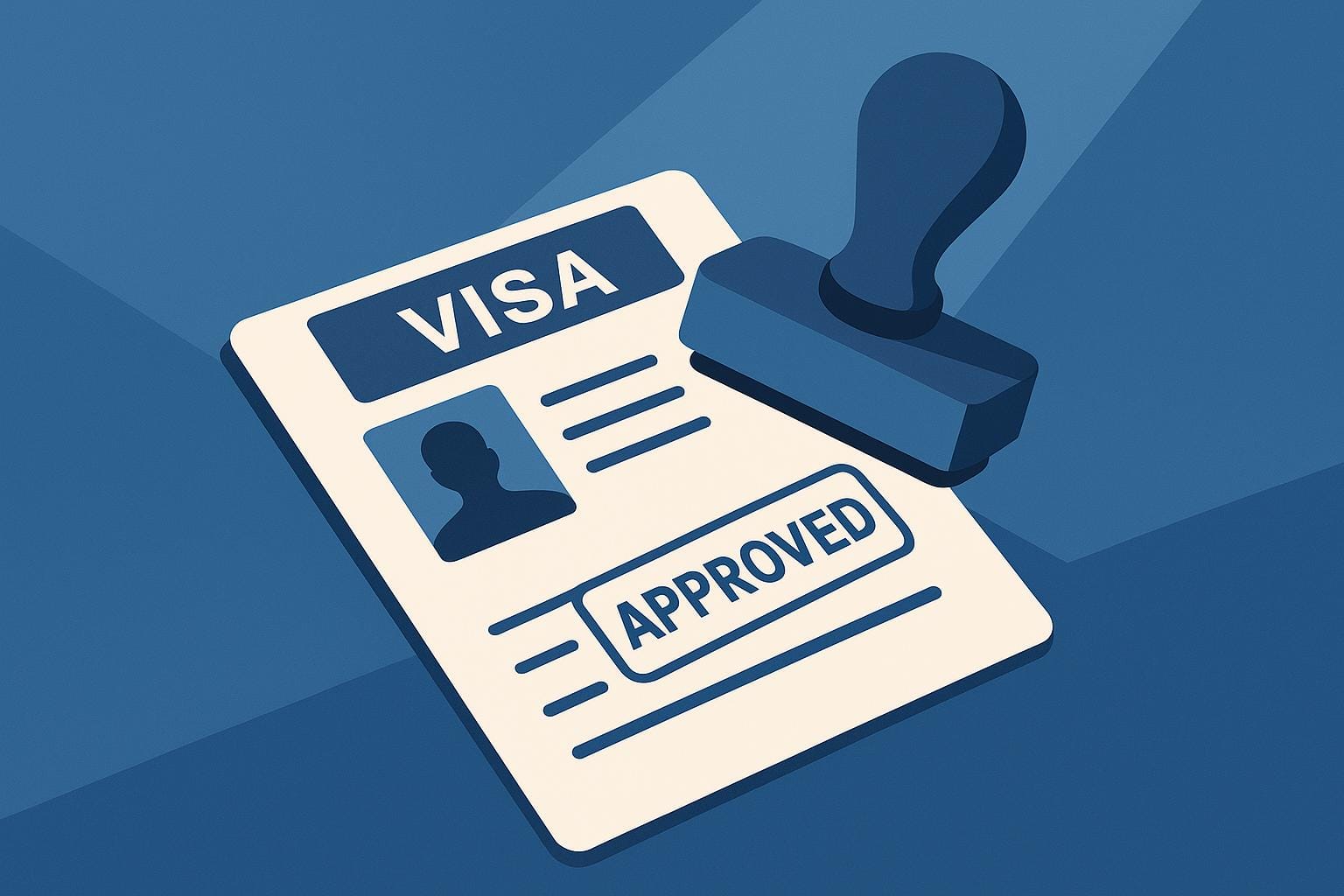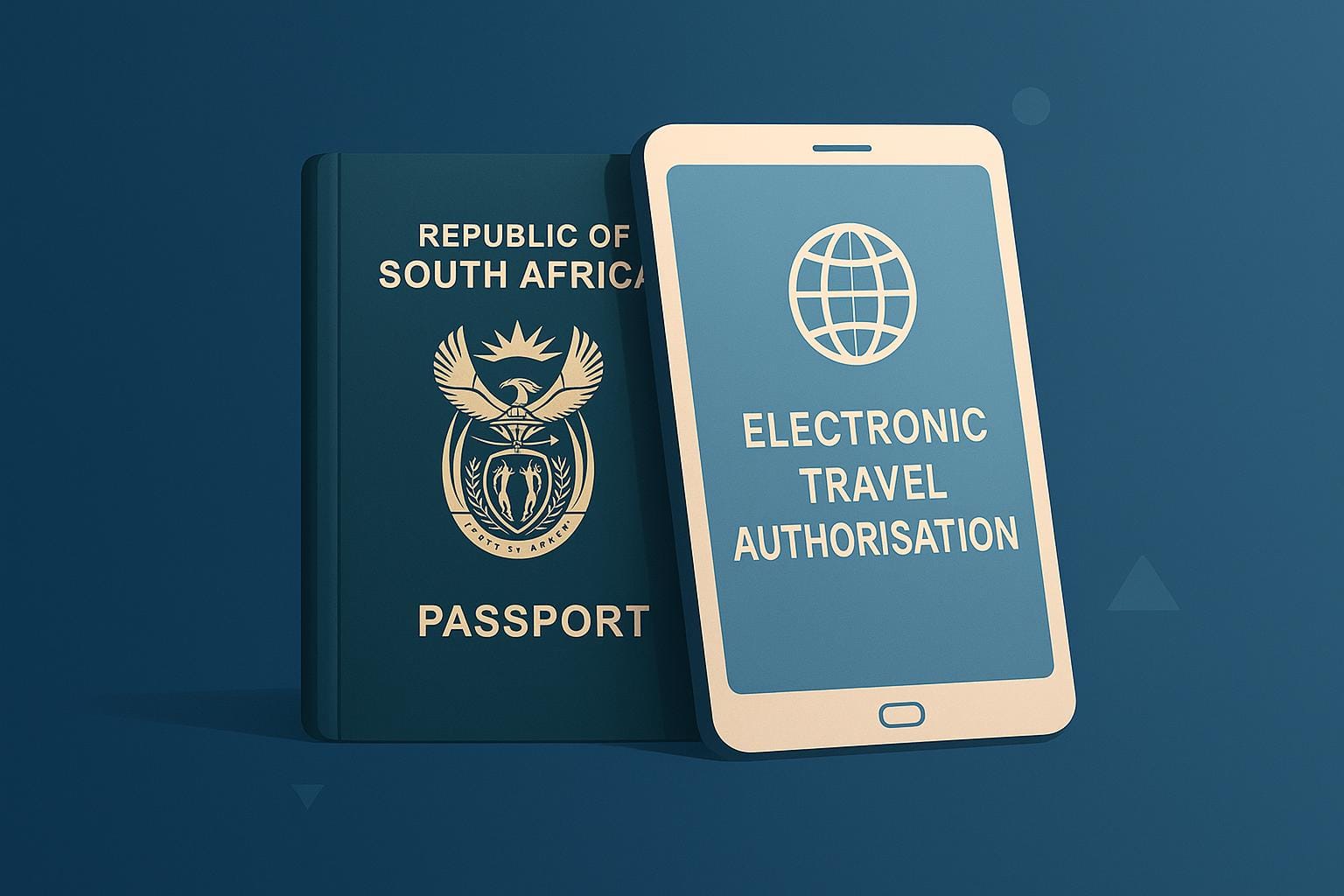Need to send experts to Argentina for short-term training? Here's what you need to know:
- Visa Purpose: Argentina's Tech Transfer Business Visa allows foreign professionals to provide hands-on training and transfer technical skills to local teams.
- Duration: Stay up to 60 days, extendable for another 60 days.
- Eligibility: Sponsored by an Argentine company registered in the RENURE system.
- Cost & Processing: £157 visa fee, with processing times of 2–6 weeks.
- Key Steps: Submit documents (translated into Spanish and apostilled), register the employer in Argentina, and complete post-arrival requirements like obtaining a CUIL number.
This visa is ideal for project-based assignments, such as software rollouts or equipment installations, without needing a full work permit. Below are the types of visas available and their details:
| Visa Type | Max Stay | Purpose | Renewability |
|---|---|---|---|
| Business Visa | 60 days (extendable once) | Short-term training/work activities | Once |
| Technical/Professional Visa | 30 days (renewable up to 1 year) or 90 days (max twice a year for visa-exempt nationals) | Short-term services | As specified |
| Temporary Resident Visa | 1 year | Long-term employment | Indefinitely renewable |
For smooth processing, consider tools like VisaDoc to automate compliance and track deadlines. Ready to start? Follow the steps and ensure compliance to avoid penalties.
Who Can Apply and Visa Types
This section dives into who qualifies for Argentina's Tech Transfer Business Visa and the various visa types available, designed to meet the specific needs of tech transfer initiatives.
Argentina's Tech Transfer Business Visa is tailored for foreign professionals working with international companies aiming to share technical knowledge with local teams. The visa system includes different categories to accommodate a range of training scenarios, each with specific durations and purposes.
Application Requirements
For UK nationals and other non-MERCOSUR applicants, standard eligibility criteria apply. These focus on professional qualifications and legitimate business purposes. Applicants must demonstrate employment with a company that has established business ties in Argentina, typically through formal contracts or partnership agreements.
Key requirements include:
- A passport valid for at least six months with two blank pages.
- Proof of financial stability, such as bank statements or employer guarantees.
- Passing health and background checks.
UK-based companies must also provide proof of registration for both the UK parent company and their Argentine subsidiary or partner organisation.
Applicants must show they possess the technical skills and experience relevant to the training activities. Argentine authorities will evaluate whether the proposed training aligns with the applicant's background and the sponsoring company's needs.
3 Main Visa Categories
Argentina offers three visa options for tech transfer activities, each designed for different durations and training scenarios:
| Visa Category | Maximum Stay | Purpose | Renewability |
|---|---|---|---|
| Business Visa | 60 days, renewable once (additional 60 days) | Commercial/work activities | Once |
| Technical/Professional Visa | 30 days (renewable up to 1 year) or 90 days (maximum two applications per year for visa‐exempt nationals) | Providing short-term services | As specified |
| Temporary Resident Visa | 1 year | Long-term employment | Indefinitely renewable |
The Business Visa is the simplest option for short-term training assignments. For more complex training needs, the Technical/Professional Visa provides flexibility. Initially issued for 30 days, it can be renewed in 30-day increments up to a total of one year. Alternatively, visa-exempt nationals can apply for 90-day stays, though only twice per calendar year.
For long-term training or employment requiring formal contracts with Argentine companies, the Temporary Resident Visa is ideal. Valid for one year, this visa can be renewed indefinitely, making it suitable for extensive training programmes or ongoing technical support roles.
Required Documents
UK applicants must prepare documents that meet both British and Argentine requirements. All documents must be translated into Spanish by certified translators and apostilled where necessary.
Essential documents include:
- A completed application form with recent photographs.
- A valid passport with at least six months of validity.
- Proof of legal status in the UK, such as a visa or immigration share code.
- An invitation letter from the Argentine sponsoring company outlining the training programme's scope, duration, and business justification. This letter should detail the technical skills being transferred and identify the local teams involved.
- Evidence of commercial activity, such as contracts, partnership agreements, or formal business correspondence, to prove the legitimate business relationship between the UK and Argentine companies.
- Travel documentation, including round-trip flight reservations and hotel bookings. However, applicants are advised not to purchase non-refundable tickets until their visa is approved.
The consular fee for the visa is £157, and processing times range from 2 to 6 weeks. Early application is recommended, especially for time-sensitive training programmes.
With the visa types and documentation requirements covered, the next step is navigating the application process.
How to Apply: Step-by-Step Guide
Navigating the application process for tech transfer visas involves collaboration between HR teams, visa applicants, and Argentine authorities. The journey includes several key stages, starting from employer registration and ending with compliance steps after arrival in Argentina.
Application Preparation and Submission
The process kicks off with employer registration through RENURE (Registro Nacional Único de Requirentes de Extranjeros). For UK companies, this step is essential before employees can apply for tech transfer visas. Once the employer is registered, the applicant must sign a formal contract with the sponsoring employer. This contract should clearly outline the planned tech transfer activities and training objectives.
Applicants need to gather and prepare all necessary documents. This includes employment contracts, company registration details, and proof of technical qualifications. Make sure these documents are translated into Spanish and apostilled where required.
Applications can be submitted either in Argentina at the National Directorate of Migration or abroad at Argentine consulates. For UK applicants, submitting through the Argentine consulate in London is often the most convenient option. To do this, book an appointment with the consulate and submit your documents. The consular fee is 200 US dollars or 200 euros, which equates to roughly £160–175 depending on the current exchange rate.
Once the application is submitted, the focus shifts to completing the necessary steps after arriving in Argentina.
What to Do After Arrival
Upon arrival in Argentina, visa holders have 30 days to complete several mandatory steps. First, they must register with RENAPER (Registro Nacional de las Personas) to establish legal residency.
Next, visa holders need to obtain a CUIL number (Código Único de Identificación Laboral), which is required for tax purposes before starting any work-related activities. Additionally, background checks and medical examinations must be completed prior to beginning work.
Processing Times and Fees
Timing and fees are critical considerations to ensure a smooth process. Applications should be submitted at least six weeks before the planned travel date. Once all requirements are met, standard processing takes approximately eight business days.
Paying the visa fee is a necessary part of initiating the application process. This fee covers document reviews, visa interviews, and the final visa stamping. It’s important to note that incomplete documentation can lead to delays, as consular authorities may request additional paperwork. Also, visa fees are non-refundable, even if the application is denied.
Legal Requirements and Ongoing Duties
Once your tech transfer visa is approved and your team has arrived in Argentina, staying compliant with legal obligations is a must. Both employers and visa holders have responsibilities throughout the visa period. Meeting these requirements not only avoids penalties but also ensures smooth operations for your training programmes.
What Employers Must Do
UK companies sponsoring tech transfer employees in Argentina have several ongoing obligations. First, keep your RENURE registration up to date by reporting any changes in company structure or contact details to the National Registry.
It's also crucial to track visa expiration dates and renew them on time. Employers must ensure that foreign employees renew their residency with the National Directorate of Migration before their current visa expires. Missing this deadline can result in unauthorised employment and legal liability.
Argentina's labour laws require employers to contribute 25.53% of wages to social security and to comply with local work and termination regulations. Given Argentina's inflation rate, which hit 211.4% in 2023, staying informed about wage adjustments is particularly important.
Additionally, employers must provide a safe and fair working environment. Anti-discrimination policies should be enforced to prevent unfair treatment based on race, gender, religion, age, or disability. If termination becomes necessary, consulting legal counsel is recommended, as employees have the right to appeal their dismissal.
While employers handle these organisational duties, visa holders have their own set of responsibilities to maintain their legal status.
Visa Holder Duties
Tech transfer visa holders must fulfil certain obligations to remain legally compliant in Argentina. One key requirement is meeting physical presence standards by spending more than 50% of the year in Argentina. However, they are free to travel in and out as long as their visa remains valid.
Visa holders also need to keep their RENAPER registration and CUIL details current and must promptly report any address changes. Failure to do so can lead to administrative issues that jeopardise their legal status.
Tax compliance is another critical requirement unless their tax status changes. They must also maintain valid medical insurance throughout their stay. While visa holders enjoy the same rights as local citizens – including access to education, healthcare, and public services – they do not have political rights. Free legal services are available to all residents, regardless of documentation status.
Penalties for Breaking Rules
Non-compliance with these obligations can lead to severe penalties. Employers and visa holders alike face steep fines, visa cancellations, and even bans on future applications. For example, employers hiring foreigners without proper work authorisation may be fined 50 times the Minimum Living and Mobile Wage per unauthorised worker.
"Those who violate this prohibition to provide paid work or occupation, with or without an employment relationship to foreigners residing irregularly, will be punished jointly and severally with a fine of 50 Minimum Living and Mobile Wages per foreigner who does not have immigration authorisation to work but is provided paid work or occupation." – Section 59 of Law 25,871
The penalties are harsher if the work involves unemancipated foreigners or minors under 14, with fines increasing to 100 times the Minimum Living and Mobile Wage. Repeat violations can lead to fines up to 50% higher.
Employers also risk suspension of their RENURE registration. Under the 2020 Immigration Provision 3043/2020, companies found hiring illegal workers may lose their ability to sponsor foreign employees.
For visa holders, failing to update address changes, maintain valid insurance, or meet other obligations can result in fines, visa cancellation, and bans on future applications.
The financial and reputational risks of non-compliance far outweigh the effort required to meet these duties. Strict adherence is essential to ensure successful tech transfer operations in Argentina.
Using VisaDoc to Manage Business Visas

Managing business visas can be a complex process, but digital solutions like VisaDoc are designed to make it far more manageable. After navigating the detailed visa application process, the real challenge often lies in keeping everything on track. Manual management can be a headache for HR and travel teams, who must juggle tracking deadlines, ensuring document compliance, and adapting to ever-changing regulations. VisaDoc simplifies this by using an AI-powered platform that automates many of these tasks, offering a centralised system to oversee your entire visa programme.
VisaDoc Platform Features
VisaDoc is built to take the stress out of visa management with intelligent automation. Its AI-driven tools help teams meet Argentina's specific visa requirements by spotting potential issues, verifying compliance, and catching errors that could otherwise cause delays.
Features like automated reminders and error detection ensure that renewals happen on time, helping avoid costly mistakes in Argentina's compliance-heavy environment. The platform also includes compliance auditing, which creates detailed audit trails to prove adherence to local regulations. These features highlight the clear differences between manual processes and VisaDoc's streamlined solution.
VisaDoc vs Manual Processing
| Aspect | Manual Processing | VisaDoc Platform |
|---|---|---|
| Document Review | Prone to human error with manual checking | AI-powered verification with automated error detection |
| Deadline Management | Relies on spreadsheets, risking missed renewals | Automated reminders and real-time status tracking |
| Compliance Monitoring | Reactive to regulatory changes | Built-in compliance checks with up-to-date requirements |
| HR Integration | Requires manual data entry across systems | Seamless integration with major HR platforms |
| Audit Preparation | Time-consuming document gathering | Automated audit trails and compliance documentation |
| Processing Speed | Weeks of manual coordination | Faster, streamlined digital workflows |
The platform’s customisable workflows can scale to meet the needs of any organisation.
VisaDoc for Global Mobility Teams
VisaDoc doesn’t just handle routine tasks - it offers strategic benefits for global mobility teams. By integrating with tools like Microsoft Office and leading HR systems, the platform eliminates duplicate data entry and keeps all records synchronised. For example, when an employee’s visa status changes, updates are automatically reflected across your HR systems.
VisaDoc also centralises all visa-related documents, from training programme details to medical insurance records, in one cloud-based system. This ensures your team can access the latest visa information and regulatory updates from anywhere, making it easier to manage international tech transfer programmes across different time zones.
Summary: Managing Argentina Tech Transfer Visas
Main Points
Argentina's Tech Transfer Business Visa offers UK companies the opportunity to train local teams while adhering to local compliance requirements. This visa allows a 60-day stay, with the option to extend for an additional 60 days, making it adaptable for various training needs.
Key operational details include the £160 visa fee, which is a modest investment when weighed against the benefits of knowledge sharing and business growth. The digital TAD system simplifies the process of managing invitation letters by removing the need for couriers and speeding up processing times. However, maintaining a valid RENURE registration is critical, as it is a mandatory requirement for sponsoring foreign workers.
To address administrative hurdles, digital tools can make a significant difference. For instance, VisaDoc's platform automates compliance tasks, reducing the chances of manual errors. Its AI-powered verification system catches mistakes before submission, while automated reminders help ensure renewal deadlines are met. For global mobility teams handling multiple tech transfer programmes, the platform's ability to integrate with HR systems eliminates repetitive data entry.
Preparing for the consular interview is also vital. Unlike certain visa categories, this process does not require intermediaries, allowing companies to manage applications directly. When combined with VisaDoc's features, such as document management and compliance audits, businesses can efficiently handle the visa process.
FAQs
What is the difference between Argentina's Business Visa and Technical/Professional Visa for tech transfer purposes?
Argentina's Business Visa is perfect for short-term activities like attending meetings, participating in training sessions, or sharing expertise. The application process is relatively straightforward, making it an ideal choice for brief stays.
On the other hand, the Technical/Professional Visa caters to technicians and specialists involved in specific tasks, such as skill transfer or technical projects. This visa allows for longer stays - up to 90 days, with the option to extend - and is designed for more focused, professional roles.
Selecting the appropriate visa depends on the nature of the tech transfer activity, the duration of the visit, and the professional's responsibilities within the project.
What steps should UK businesses take to comply with Argentine regulations when sponsoring foreign professionals for short-term training?
UK businesses looking to operate in Argentina must carefully navigate the country's regulations, particularly when it comes to securing the Tech Transfer Business Visa. This involves obtaining the necessary sponsorship approval and ensuring all training activities meet the visa's specific requirements. Accuracy and thoroughness in documentation are key to avoiding complications.
Here are the main steps to keep in mind:
- Submitting the Tech Transfer Business Visa application: All forms and supporting documents must align with Argentine immigration standards. Double-check for completeness and accuracy before submission.
- Ensuring compliance with salary and activity rules: Verify that the training activities correspond to the visa's stated purpose and that any compensation meets the required thresholds.
- Maintaining detailed records: It's essential to document the sponsored professional's activities thoroughly. These records may be reviewed during audits or inspections to confirm compliance.
By focusing on preparation and precision, UK businesses can ensure they meet Argentina's legal requirements efficiently and without unnecessary delays.
What happens if employers or visa holders fail to comply with the legal requirements of Argentina's Tech Transfer Business Visa?
Failure to meet the legal requirements of Argentina's Tech Transfer Business Visa can result in serious repercussions for both employers and visa holders. These could range from fines and denial of entry to the revocation of the visa, potentially causing significant disruptions to business operations and harming professional reputations.
Employers may also encounter further penalties, such as heightened scrutiny from immigration authorities or limitations on submitting future applications. To steer clear of these risks, it’s essential to comply with all legal obligations. This includes maintaining accurate documentation, adhering to visa conditions, and ensuring renewals are handled on time.
Related Blog Posts
- Supporting Your Employees Through the Visa Process: A Travel Manager’s Guide
- Short-Term Training Delivery in Brazil: Business Visa Categories for Corporate Instructors
- Mexico's Corporate Training Visa vs. Business Visitor Status: Choosing the Right Option
- Chile's Tech Business Visa: 30-Day Option for Software Implementation Teams













